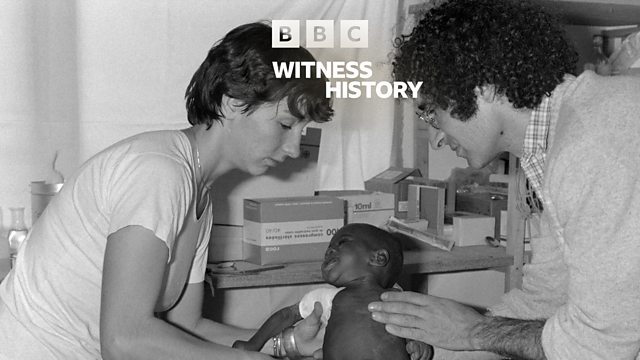The birth of Médecins Sans Frontières
In 1971, 13 men sat down in a Paris office to launch what would become one of the world’s best known humanitarian groups: Médecins Sans Frontières or Doctors without Borders.
In 1971, 13 men sat down in a Paris office to launch what would become one of the world’s best known humanitarian organisations: Médecins Sans Frontières, or Doctors without Borders.
The men were among hundreds of volunteers responding to an appeal by the French medical journal, Tonus, after a major cyclone devastated East Pakistan.
The campaign sparked the idea for the charity. The 13 founders – two journalists and 11 doctors – drew up a charter aiming to provide medical care regardless of race, religion or politics.
MSF’s first missions included helping victims of a Nicaraguan earthquake and a hurricane in Honduras. And in 1999, the charity won the Nobel Peace Prize in recognition of their work.
Dr Xavier Emmanuelli, one of the founders, talks to Jane Wilkinson about setting up MSF, and his early humanitarian work.
Eye-witness accounts brought to life by archive. Witness History is for those fascinated by the past. We take you to the events that have shaped our world through the eyes of the people who were there.
For nine minutes every day, we take you back in time and all over the world, to examine wars, coups, scientific discoveries, cultural moments and much more.
Recent episodes explore everything from the death of Adolf Hitler, the first spacewalk and the making of the movie Jaws, to celebrity tortoise Lonesome George, the Kobe earthquake and the invention of superglue.
We look at the lives of some of the most famous leaders, artists, scientists and personalities in history, including: Eva Peron – Argentina’s Evita; President Ronald Reagan and his famous ‘tear down this wall’ speech; Thomas Keneally on why he wrote Schindler’s List; and Jacques Derrida, France’s ‘rock star’ philosopher.
You can learn all about fascinating and surprising stories, such as the civil rights swimming protest; the disastrous D-Day rehearsal; and the death of one of the world’s oldest languages.
(Photo: Doctors from Médecins Sans Frontières in Chad, 1981. Credit: Dominique Faget/AFP via Getty Images)
Last on
More episodes
Previous
Broadcasts
- Tue 23 Sep 2025 07:50GMTÃÛÑ¿´«Ã½ World Service
- Tue 23 Sep 2025 11:50GMTÃÛÑ¿´«Ã½ World Service
- Tue 23 Sep 2025 17:50GMTÃÛÑ¿´«Ã½ World Service except East and Southern Africa, News Internet & West and Central Africa
- Tue 23 Sep 2025 21:50GMTÃÛÑ¿´«Ã½ World Service East and Southern Africa & West and Central Africa only
- Wed 24 Sep 2025 02:50GMTÃÛÑ¿´«Ã½ World Service except East and Southern Africa, East Asia, South Asia & West and Central Africa
Podcast
-
![]()
Witness History
The story of our times, told by the people who were there


